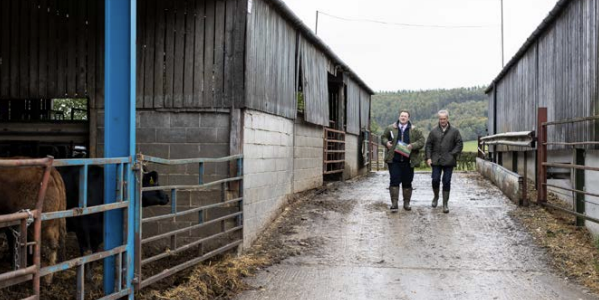Changes to AHA tenancy succession rules
Changes to the rules on succession for Agricultural Holdings Act (AHA) tenancy agreements came into effect on 1 September 2024.
This is the final element of the Agriculture Act 2020 to be implemented.
The changes follow recommendations from the Tenancy Reform Industry Group with the aim of improving agricultural productivity and ensuring that the best applicants are eligible.
The old commercial unit test restricted the ability of some applicants, who may be very good farmers, to bring about succession claims by not allowing them to occupy other agricultural units.
Often this would result in applicants having to carefully plan occupational arrangements for any other land they farmed, adding an unnecessary complexity to their businesses.
The previous suitability test was also often considered a low bar for candidates to pass and did not necessarily foster conditions for the best applicants to take on holdings.
Under the new rules, there remain two sets of tests for an applicant to satisfy – eligibility and suitability.
Applicants will be required to satisfy a two-stage eligibility test, which remains unchanged:
a. The ‘close relative test’ and
b. The ‘principal source of livelihood test’.
The commercial unit test no longer applies but there is a new and more demanding suitability test which asks whether the landlord would consider the applicant a candidate they would be willing to grant the tenancy to.
If the parties can’t agree, the case goes to the First Tier Property Tribunal for a decision.
The Tribunal will consider matters including the following:
a) the person’s likely capability and capacity to farm the holding commercially, with or without other land, taking into account the need for high standards of efficient production and care for the environment in relation to managing that holding;
b) the person’s experience, training and skills in agriculture and business management;
c) the person’s financial standing and their character;
d) the character, situation and condition of the holding;
e) the terms of the tenancy,
An application under the new suitability test may become similar to a tender submission for a new letting, but with the applicant as the only candidate being considered.
They will need to demonstrate that they should be considered by the landlord for taking on the holding in much the same way, but without the requirement to submit a rental figure.
The changes should provide opportunities for more progressive tenants to succeed to holdings and give landlords greater comfort that those taking on their land have had to demonstrate their qualities through a more rigorous process.
However, there will inevitably be points of disagreement as there remains subjectivity around whether someone is suitable.
There will likely be Tribunal cases that provide more clarity on the changes. However, these test cases may not happen for several months.
AHA agreements are likely to remain in place well into this century. Expert advice is beneficial to both parties in ensuring a smooth process at what is a significant moment for all.
The rule that a tenant had to be 65 to give a retirement notice was removed before these changes were introduced.
If you have any queries about the changes, please contact Matthew Scott.






